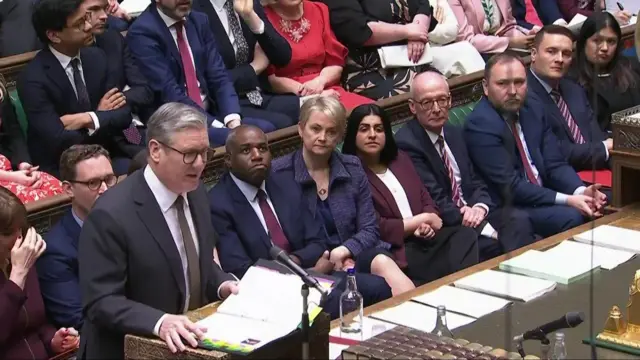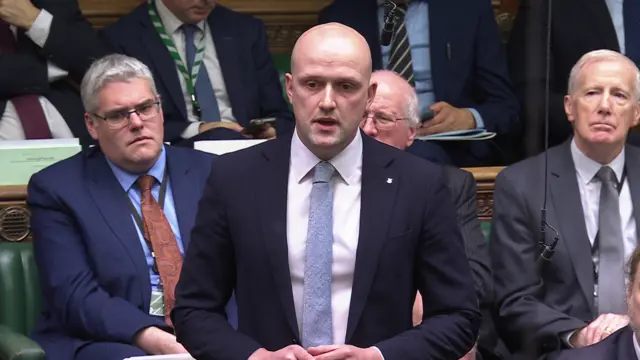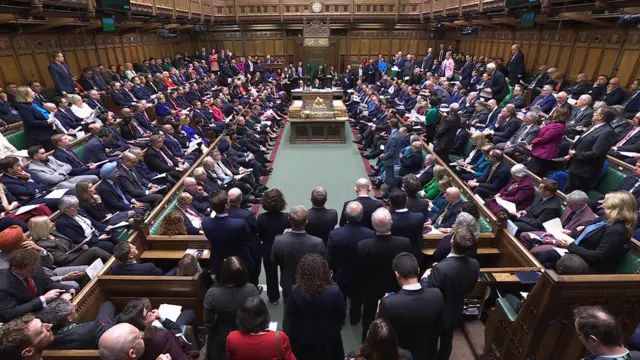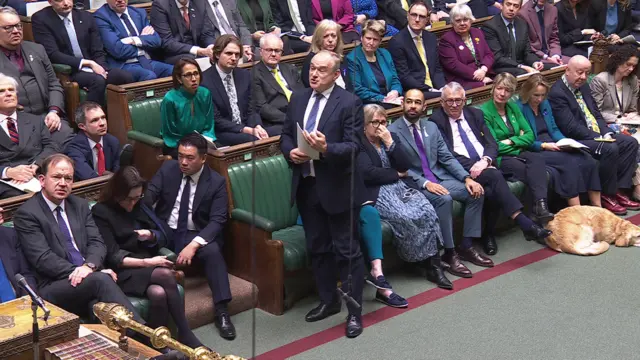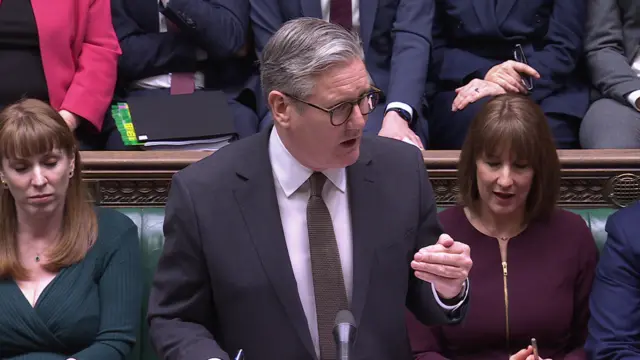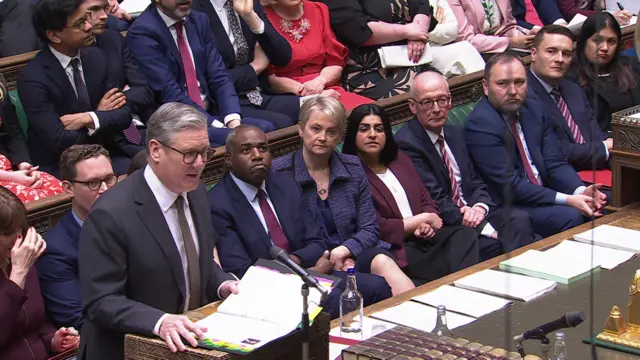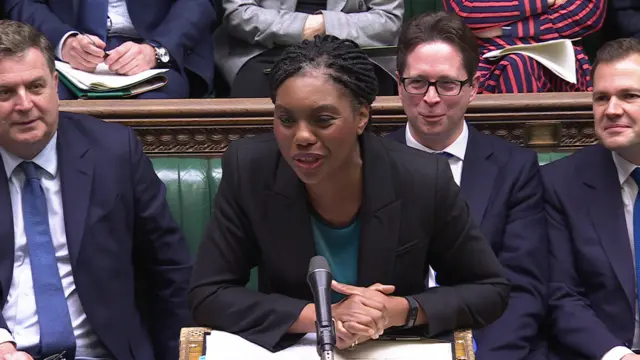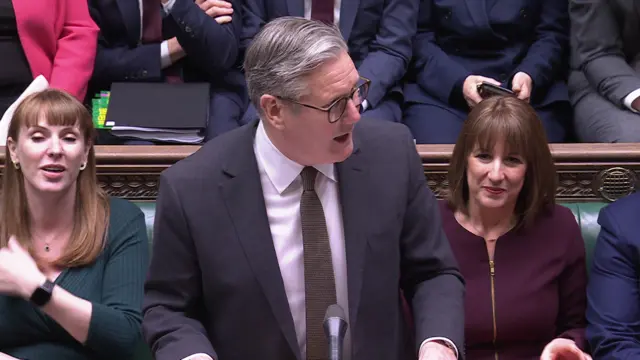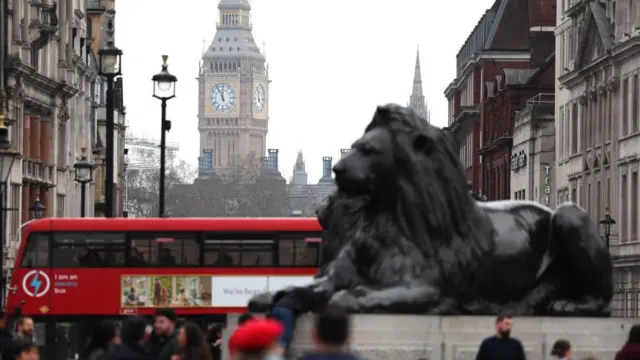Reeves attacks Truss mini-budget, says fiscal rules 'non-negotiable'published at 12:40 GMT 26 March
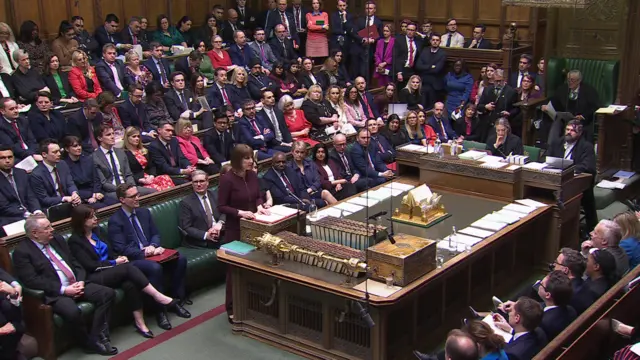 Image source, UK Parliament
Image source, UK ParliamentReeves turns now to the fiscal rules she set out in October Budget - calling them "non-negotiable".
She says they will bring "stability" to the economy and "security" for working people.
She refers next to Liz Truss's mini-budget, saying the British people have seen what happens "when a government borrows beyond its means".

